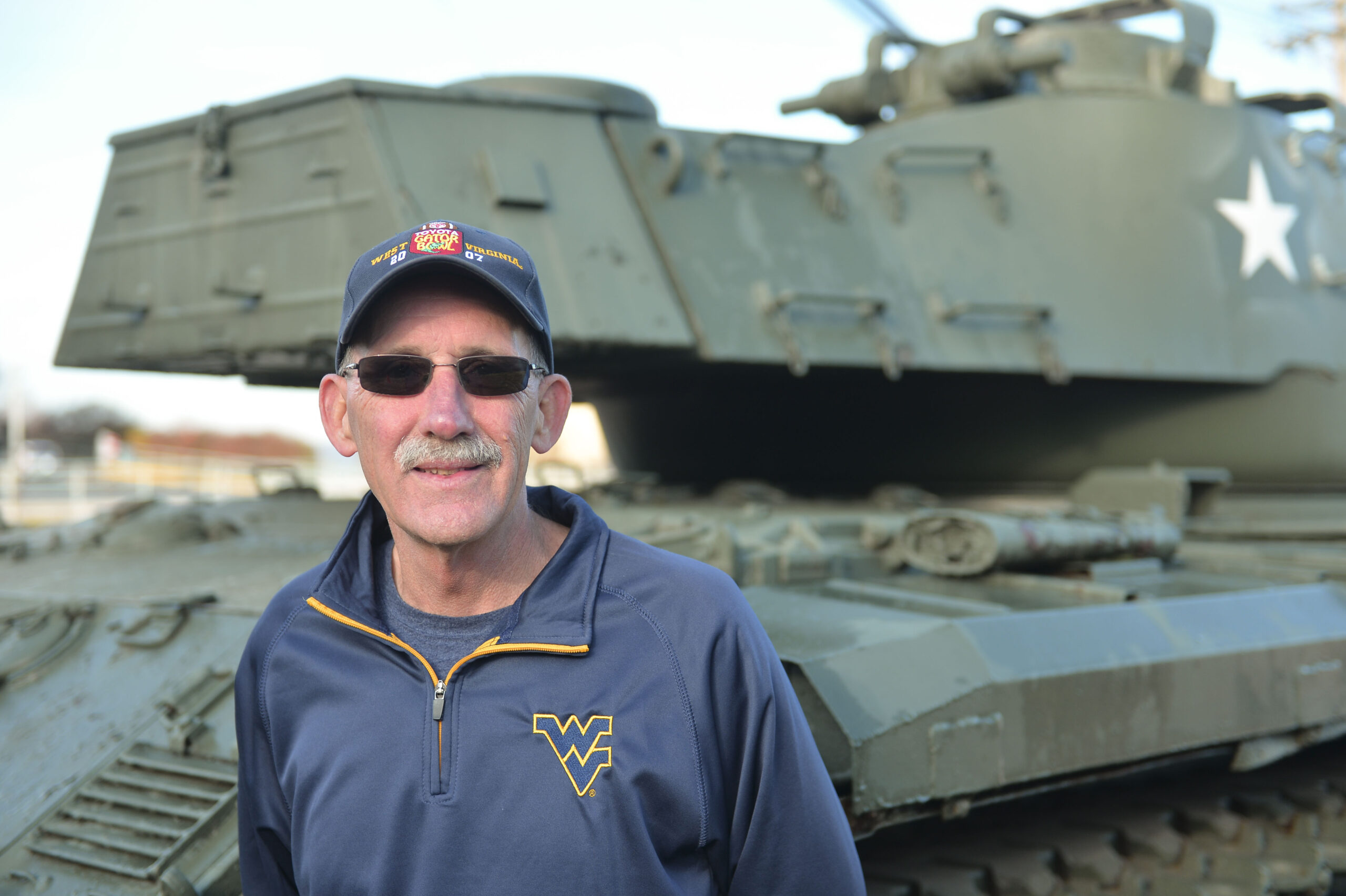Harless McCombs, the super fan of WVU football, isn’t all that alarmed about this just-completed season.
“Alarm,” is a word the first responder handles gently.
He doesn’t just flip it out there, like a screen pass on second down.
One rude fire alarm, however, was why he had to politely disengage from his phone call on the day before Thanksgiving last week.
“Aw, shoot,” he said.
“I’m sorry. I’m gonna have to go see what that is. I’ll call you back when I can, I promise.”
Which he did, about 30 minutes later, sounding like the volunteer fire chief he is.
“We had a tree down on 19. I don’t know about this wind. And we’ll probably have to deal with the turkeys in the deep fryers next.”
McCombs, 62, heads the all-volunteer department in his hometown of Monongah.
The former coal camp in outlying Marion County is about 40 minutes from Milan Puskar Stadium in Morgantown.
Football in that region runs as deep as the coal seams.
Sam Huff, the fierce linebacker who went from WVU to the NFL, grew up right across the way in Farmington.
In 1968, the year McCombs turned 11, he cheered with everybody else as former WVU legend Kerry Marbury, and current Alabama head coach Nick Saban, helped take Monongah High School to victory in the state championship.
Nick Saban Sr., dad to the ‘Bama coach, created dynasties of his own nearby, in his prowl on the sidelines as head guy of the Idamay Black Diamonds, in the Pop Warner league.
Then there’s the fire chief, who just finished the season at 200-0.
That’s how many consecutive WVU home games McCombs has seen, although he’s logged a lot more than that.
‘The guy I listened to on the radio’
As a little kid, McCombs took in the proceedings with his mother at old Mountaineer Field, that gloriously rickety bowl down from Woodburn Hall, on the downtown campus.
One of his earliest memories is also one for the highlight reel.
He was around 7, which would have the put the year around 1964 — when gentlemen still wore neckties to the game and ladies could been seen in Sunday dresses on a Saturday afternoon.
One of those gentlemen, tall, with a rich voice, stopped his stride to say hello and shake the youngster’s hand.
“My mom told me it was Jack Fleming,” he said. “The guy I listened to on the radio.”
WVU football was decidedly a radio sport in those days.
There weren’t any lucrative TV contracts then.
Your tabletop Zenith carried Fleming’s word pictures of the Xs and Os.
In Point Marion, Pa., just over the state line, the parents of WVU basketball great Buddy Quertinmont would drive the family car to Evergreen Cemetery, to catch the AM football call from Morgantown and elsewhere.
The hallowed ground offered the highest vista in Point Marion, which was perfect for the antenna.
Passing a goalpost in Sunnyside with his Camaro
As a fan, McCombs was lucky enough to make friends with a trio of Mountaineers from the Mountain State.
Right out of high school, he got a job at an electrical shop in Westchester, which is in between Monongah and Fairmont.
WVU footballers Reggie Armistead and Calvin Turner, who were from Fairmont, secured summer jobs there, along with Steve Newberry, who was recruited to the team from Petersburg.
“I was a truck driver and Steve started riding around with me,” he said.
As cool as that was, it still couldn’t compare with passing a goalpost in Sunnyside with his Camaro.
“That was my dream car. It was a 77, two-tone blue. I had it up to 120 one time.”
Not on that fall night in 1984 in Morgantown, though.
Not when WVU finally beat Penn State after 29 years of being on the other end of the scoreboard.
He had just finished yelling himself hoarse in the stands and was oh-so-carefully edging his dream car through the raucous crowd in the student neighborhood.
“I don’t know why I tried to go that way,” he said.
He had to yield to the throng and the unmistakable goal post.
The students had yanked it down and were parading it in celebration.
“They just kind of fanned out around us,” he said, chuckling. “My mom kissed a student on the cheek.”
Then, she touched the goal post, just because.
Why we’re fans
That “just because” factor carries great import in the emotional annals of fandom, says Daniel Wann, a psychology professor at Murray State University, in Kentucky.
Your team, he says, becomes an extension of your community.
McCombs, for instance, never moved away from Monongah, but he’s pretty well-rounded as a traveler.
He’s trekked to seven countries, where he’s still managed to meet a WVU fan or two.
“This is like no other place anywhere,” he said.
At any moment, like an old-time Super 8 movie projector, McCombs can unspool a Mountaineer memory.
He can still conjur the time he met Bobby Bowden at a restaurant in Altoona after a Penn State game.
He can still freeze the looks of shock and awe on the faces of the Georgia faithful after Phil Brady’s sleight-of-foot fake punt in the 2006 Sugar Bowl.
Now, he’s looking forward to his next 200 games.
It didn’t take long for him to become a Neal Brown fan.
Or, to accept that this season was likely going to on the lesser end because of the transition.
No alarms there, as the fire chief said earlier.
“I’m trusting the climb,” he said. “We’re getting it back. I know it.”
The assertion in his voice may have suggested another football coach who once said to leave no doubt.
TWEET @DominionPostWV.




